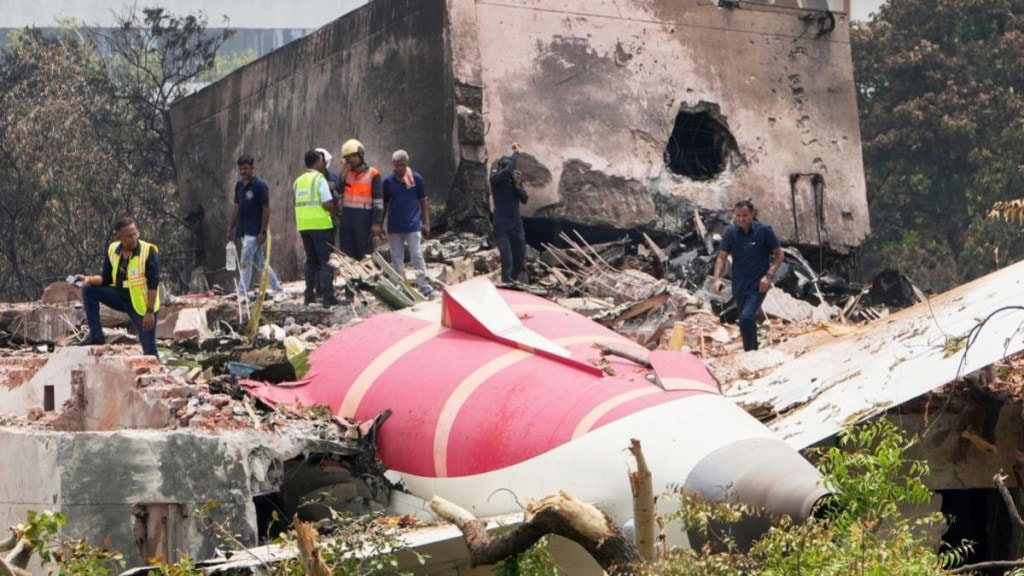Air India plane crash in Ahmedabad: Amid speculation of poor maintenance of the Boeing 787-8 aircraft following the tragic Air India plane crash near Ahmedabad, the Turkish government has issued a strong denial of claims linking its aviation maintenance firm, Turkish Technic, to the ill-fated aircraft. The official clarification came in response to allegations, including those made by yoga guru Baba Ramdev, suggesting that a Turkish agency was responsible for the plane’s servicing.
In an official statement, Turkish authorities said: “The claim that the maintenance of the Boeing 787-8 aircraft was carried out by Turkish Technic is false.” They emphasised that their agreements with Air India, signed in 2024 and 2025, apply exclusively to B777-type wide-body aircraft. “To date, Turkish Technic has not conducted maintenance on any Air India aircraft of the B787-8 type,” the statement added.
Turkey claims disinformation aimed at manipulation
Turkish officials went further, calling the allegations “disinformation” intended to manipulate public opinion and strain Türkiye-India relations. They also noted that while they are aware of which company last serviced the crashed aircraft, they will not disclose the name to avoid further speculation.
The statement also affirmed that the Centre for Countering Disinformation would remain vigilant against efforts to target Turkish institutions.
The controversy escalated after Baba Ramdev publicly claimed a Turkish agency was involved in the maintenance of the crashed aircraft.
What we know about the investigation?
Meanwhile, the role of ground handling (GH) staff, particularly those previously employed by Turkish company Celebi, is emerging as a potential focus in the investigation into the plane crash.
Celebi’s contract was recently annulled, but according to reports, many of its staff have since been absorbed by other ground handling operators at airports across India. As per reports, the Ministry of Civil Aviation (MoCA), reports that the Directorate General of Civil Aviation (DGCA) and the Bureau of Civil Aviation Security (BCAS) have launched a multi-level probe to examine whether any lapses or possible sabotage at the ground level may have contributed to the disaster.
The Aircraft Accident Investigation Bureau (AAIB) is leading the inquiry, awaiting crucial data from the Flight Data Recorder (FDR), Cockpit Voice Recorder, and Aircraft Communications Addressing and Reporting System (ACARS). However, suspicions have already been raised over a technical anomaly, the aircraft’s landing gear reportedly remained extended even at 600 feet, an abnormal condition during takeoff.
This unusual gear position has heightened concerns about possible human intervention or oversight during pre-flight maintenance or ground handling. Investigators are now closely examining engineering and maintenance protocols, tool access logs, and staffing rosters to determine whether the crash was the result of a mechanical failure, human error, or potential sabotage linked to GH operations.
Sources in the Aircraft Accident Investigation Bureau (AAIB) told The New Indian that Air India flight AI 171’s pilot may have noticed irregular hydraulic pressure before the crash. The Boeing 787 has three independent hydraulic systems powering key functions like landing gear, each delivering fluid at 5,000 psi, which is crucial for safe operation. An anomaly could explain the desperate “Mayday” call.
According to The New Indian sources, ground handling (GH) staff and maintenance personnel play a key role in refilling hydraulic reservoirs, ensuring critical systems like landing gear and wing flaps function properly. In India, major airlines rely on MRO firms such as AIESL, Air Works, Lufthansa Technik, and Turkish Technic for daily aircraft checks. However, it remains unclear which firm serviced Air India’s AI 171 at Ahmedabad airport. Investigators are closely examining the role of GH staff particularly those previously employed by Celebi amid emerging clues.
AAIB officials revealed that the wing flaps on AI 171 were not in their standard 5–15 degree take-off position, raising concerns about hydraulic failure, possibly compounded by aircraft weight. “Hydraulic systems control crucial components like landing gear, nose wheel steering, and flaps. If pressure was low, those functions could be compromised,” an AAIB source said, adding that sabotage, terror, or technical failure remain open lines of inquiry.
Celebi contract terminated post Operation Sindoor
Tensions between India and Turkish aviation firms have been simmering. Recently, Adani Airport Holdings terminated ground-handling agreements with Turkish company Celebi NAS Airport Services in Mumbai and Ahmedabad. The move followed the Indian government’s revocation of Celebi’s security clearance, citing national security concerns.
Amid rising geopolitical tensions and national sentiment, Air India CEO Campbell Wilson has indicated that the airline will scale back the number of wide-body aircraft sent to Turkish Technic for heavy maintenance.

